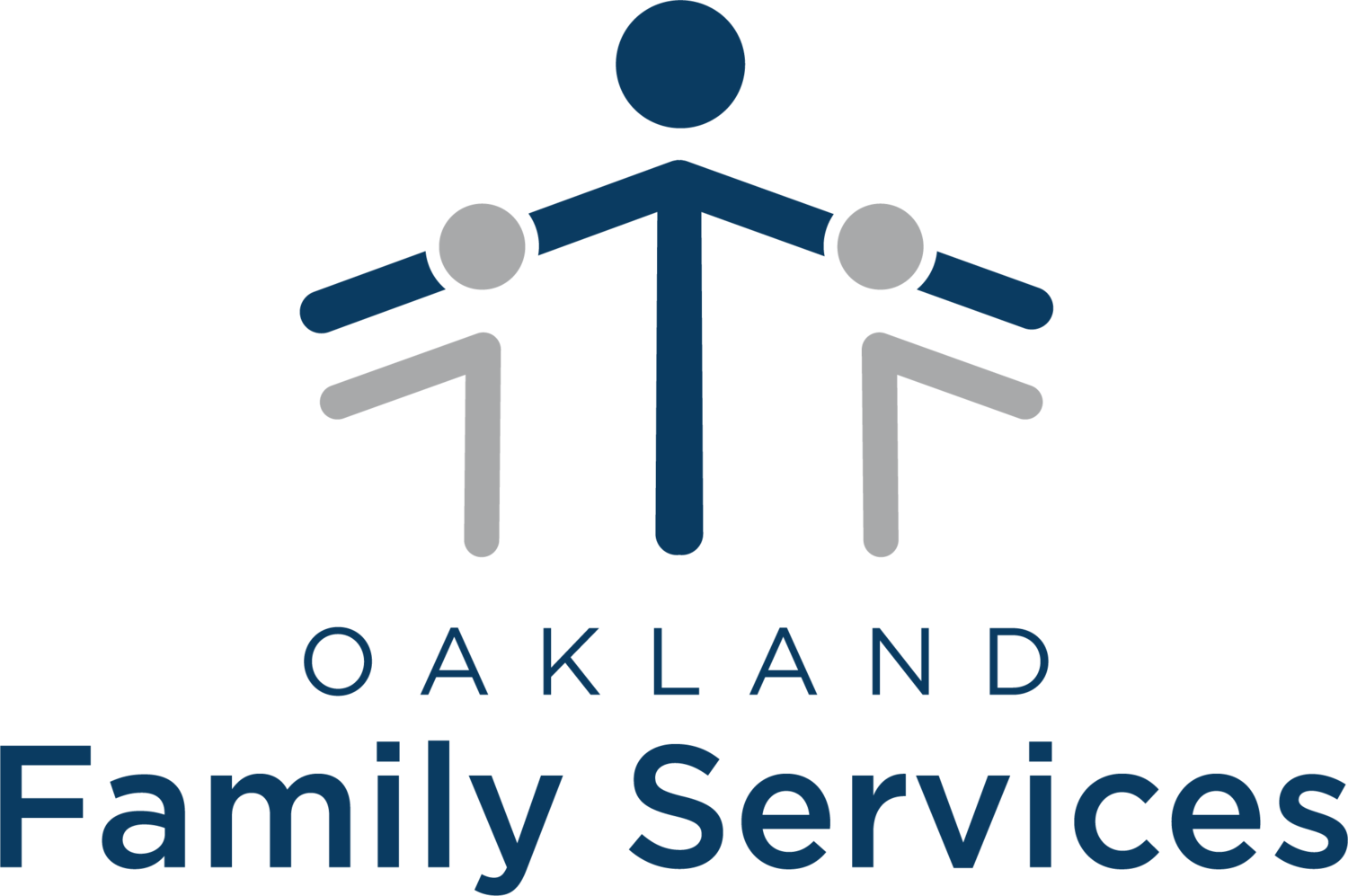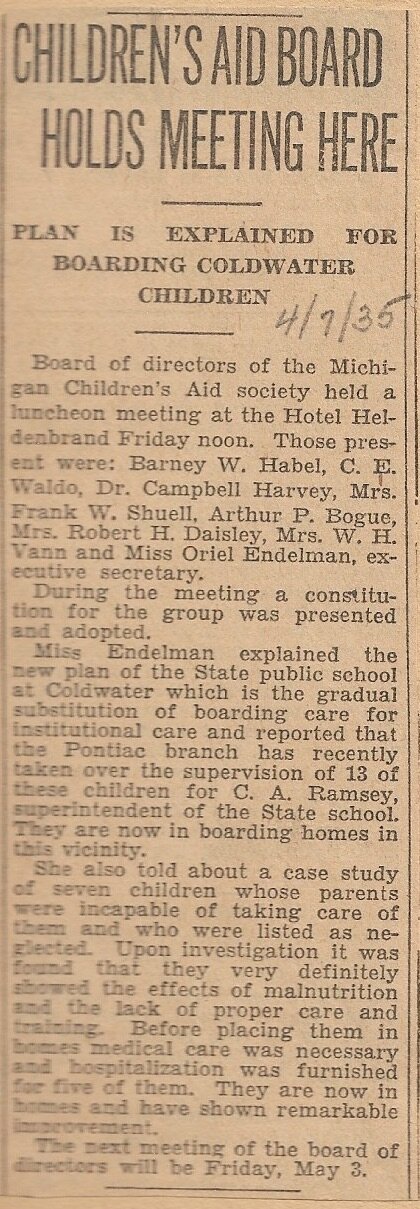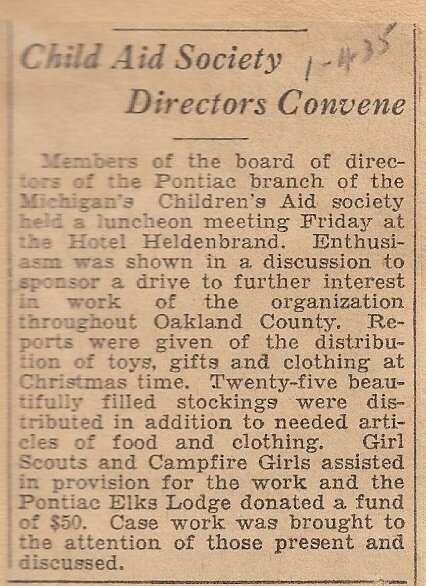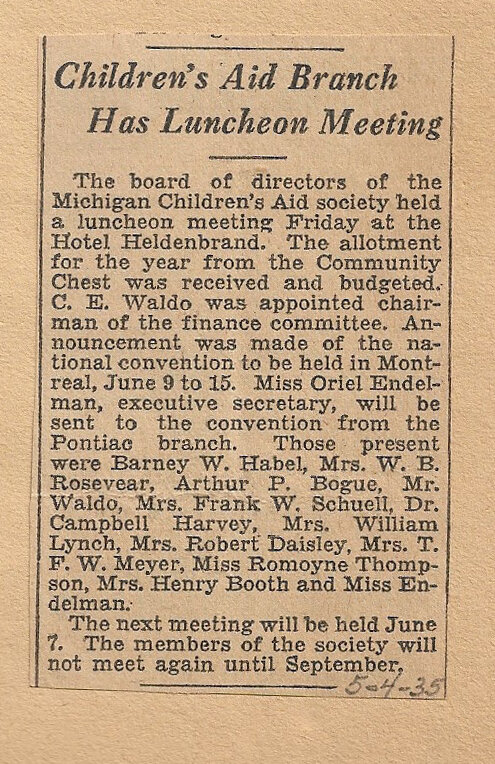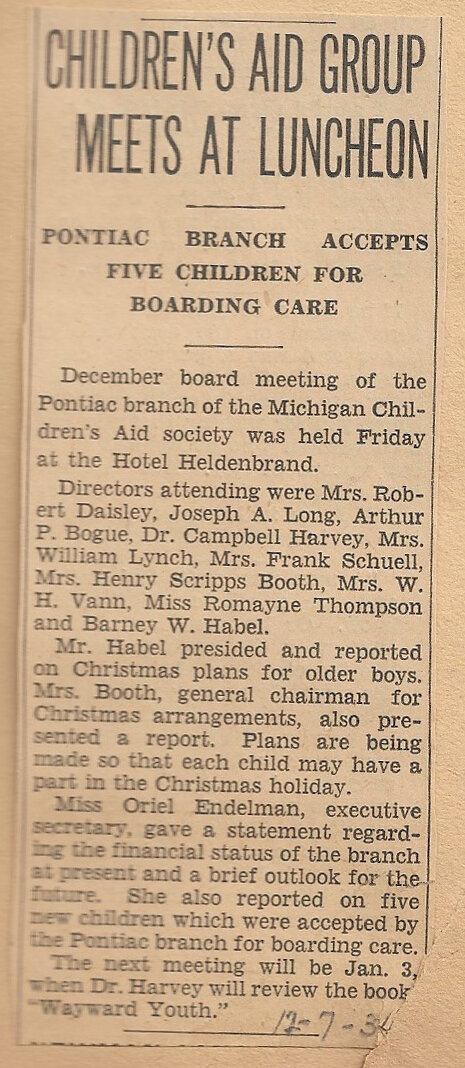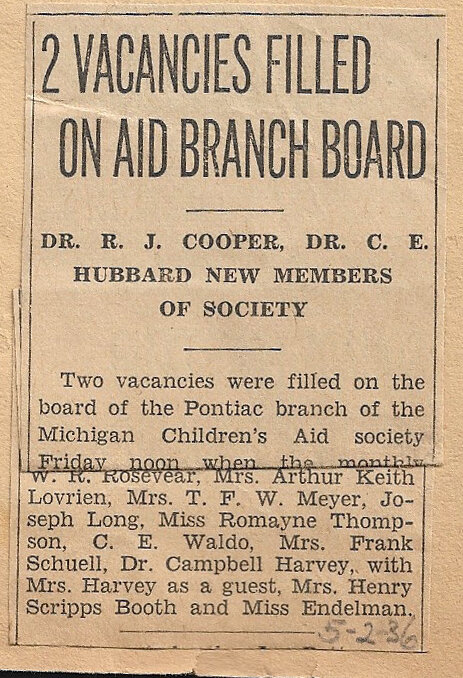Board members reflect on experiences with Oakland Family Services
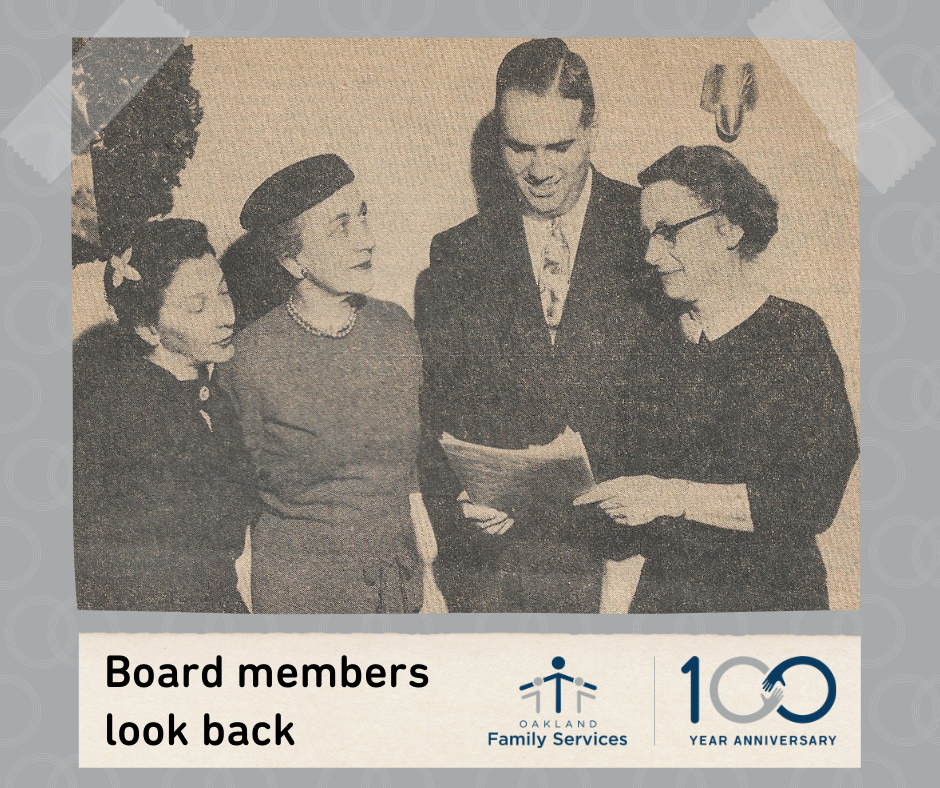
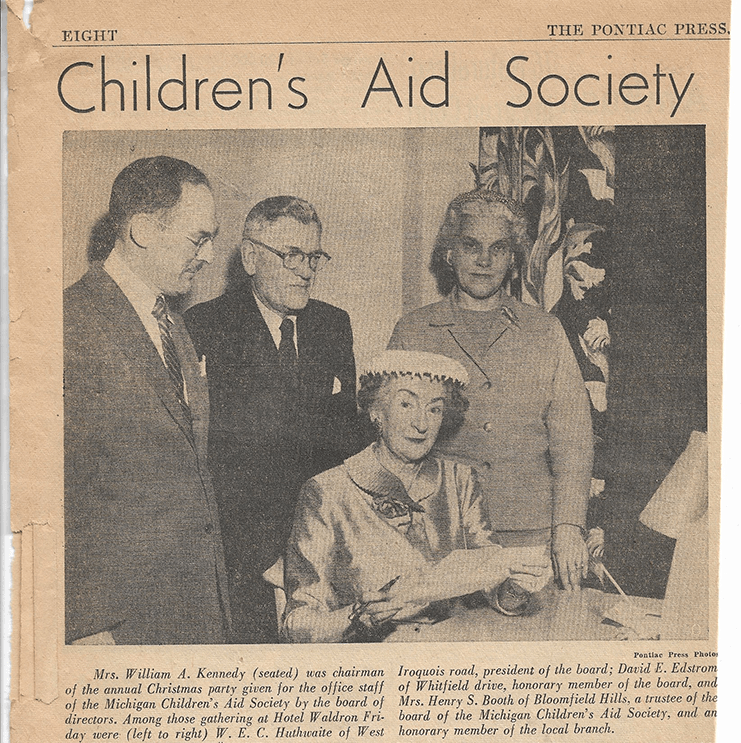
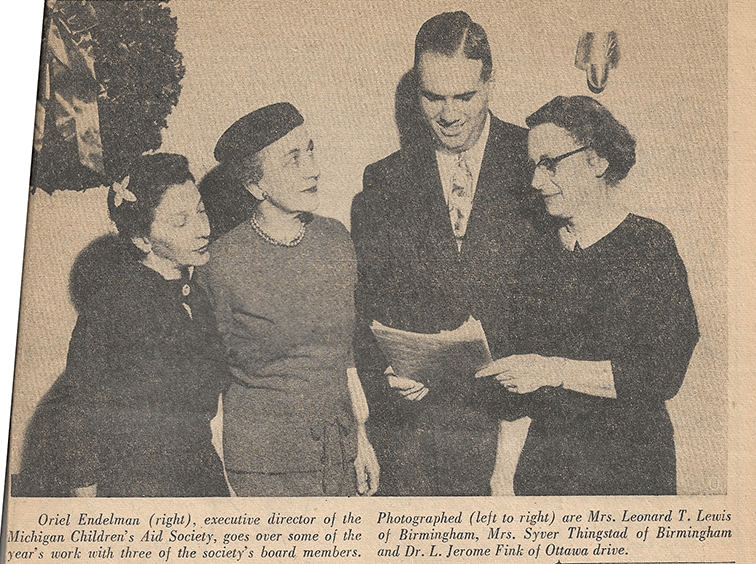
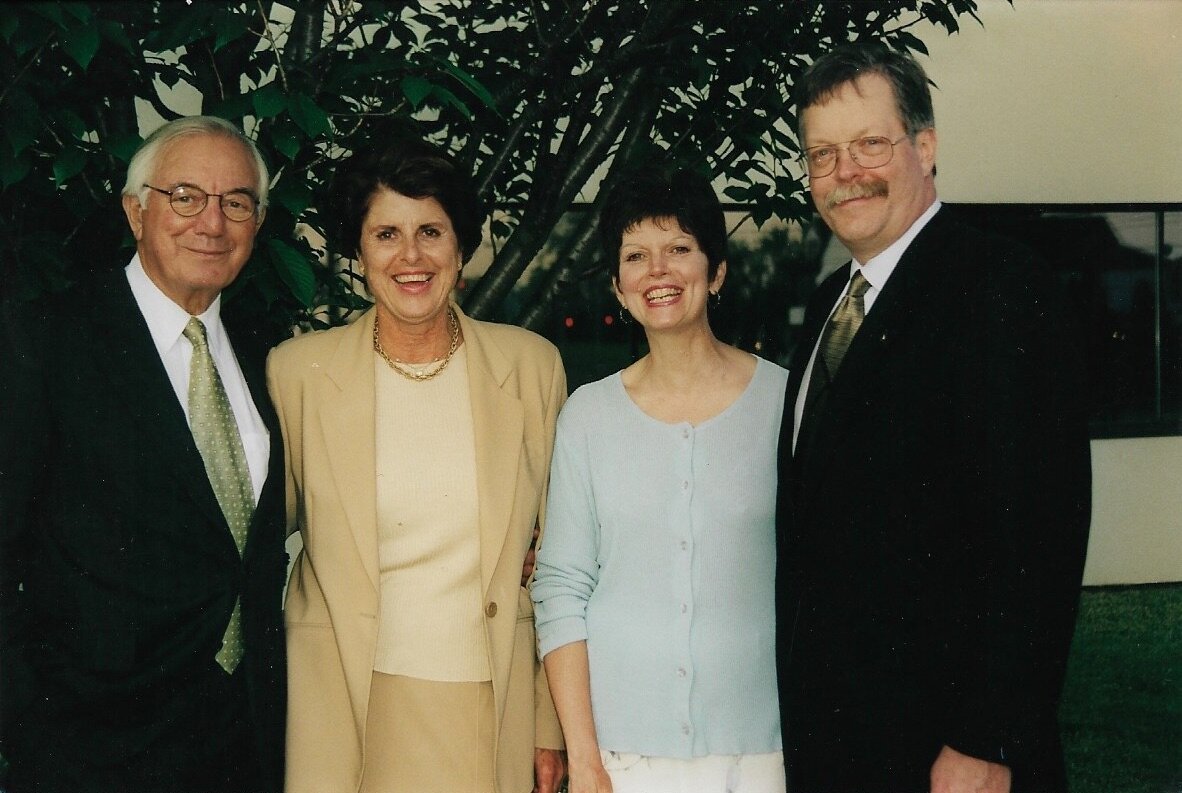
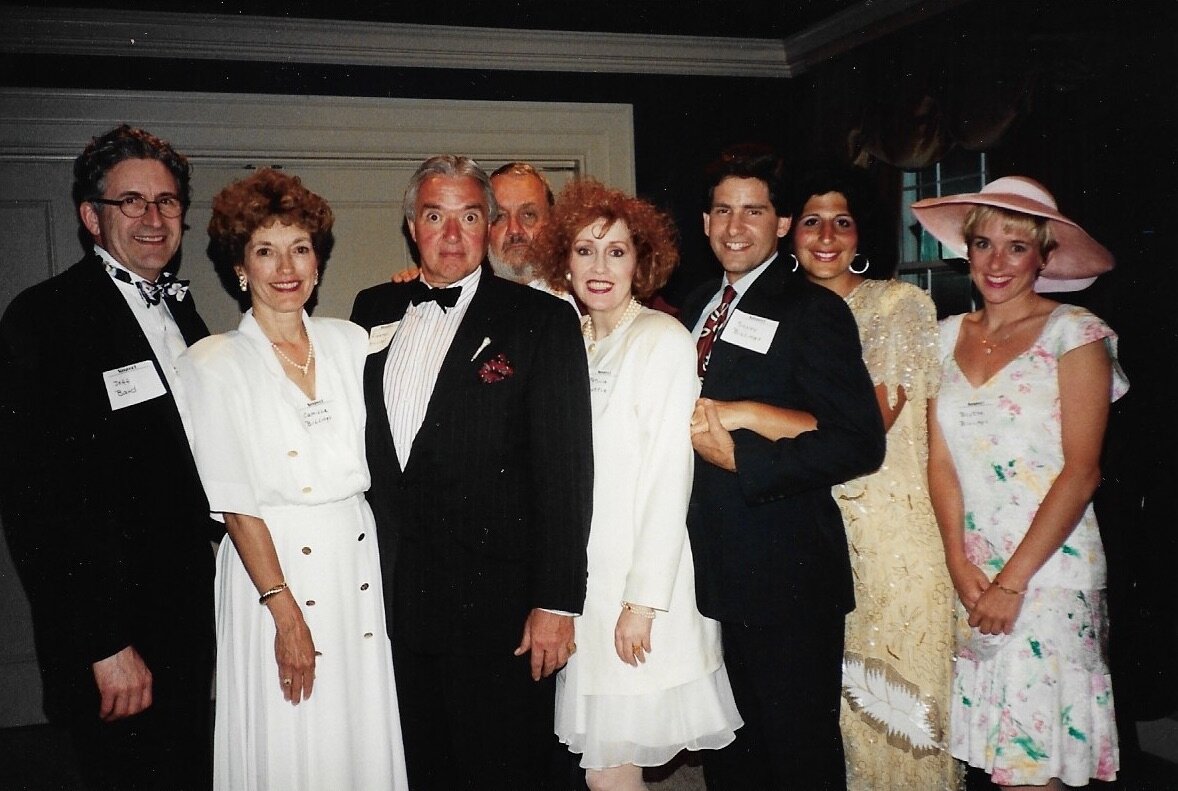
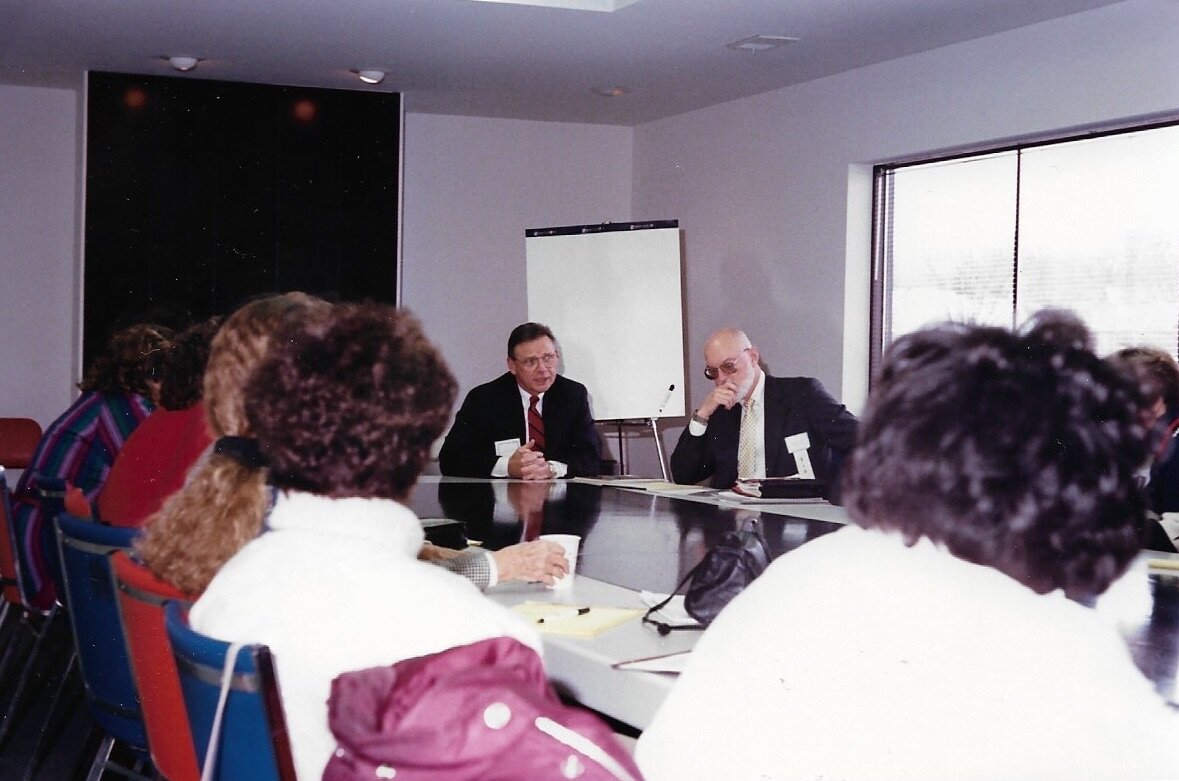
Oakland Family Services is steered by a dedicated, qualified Board of Directors who share their passion, experience and leadership on a volunteer basis. The board provides guidance on the agency’s direction, goals, budgeting and services.
Oakland Family Services’ board is presently made up of 30 members. Many have sat on the board for decades, with the current longest-running member, Guy Gordon, having served since 1988. In celebration of the agency’s 100th anniversary, five past and present board members recently gathered via Zoom to reflect on their time at Oakland Family Services.
Board members discussed their favorite experiences, changes they have witnessed over the years, and what they see for Oakland Family Services’ future.
“My fondest memories have always been listening to clients of Oakland Family Services and the therapists and so on tell their stories,” said Robert Scharff, who has sat on the board since 1995. “Those are always tremendous memories.”
Scharff, who is the board’s treasurer and chair of the Finance and Investment committees, noted that the agency’s mental health treatment services resonate most with him because he has close friends who cope with mental illness in their families.
“One thing I think has changed is the whole mental health awareness and willingness to at least bring it out in the open and discuss it,” he said. “… We do tend to talk about physical illnesses and be pretty open about it, but not about mental illness, but I think that’s becoming more accepted.”
Similarly, Andrea Pennington, a medical doctor who joined the board in 2018, said her eyes were opened when she attended a luncheon at Oakland Family Services’ Berkley office, where staff and clients spoke about their experiences with the agency.
“I realized how complicated the cases were, how challenging the home situations were, and then I got to talk to some of the clients,” she said. “And the staff was so dedicated. I was amazed at how much time and energy they put into it. And the outcomes, talking to the clients, they were not just surviving, they were thriving. That’s really where my perception became enlightened and I was like, ‘This is really a great organization.’”
Dee Wright-Masilotti joined the board in 2004 and is chair of the Nominating Committee. She said her most valued memory is being asked to chair the committee tasked with identifying a new president and CEO following former President & CEO Michael Earl’s retirement. The committee went on to hire Jaimie Clayton in 2014.
“I just felt like it was the first time I was really asked to do something that held a great deal of value and worth to the organization,” Wright-Masilotti said. “We didn’t want to replace Michael. Michael was irreplaceable. It was about finding someone who understood and appreciated the culture of our organization and would lead with that same passion and organization.”
“It was an easy decision in the end, wasn’t it?” recalled Kenneth Whipple, a member of the board since 1999.
Tom Kimble, the board’s first African-American chair, was a member of the board during the 1980s and again from 1998 to the early 2010s. His best memories from serving on the board center on working with his fellow board members.
“The greatest memory was the opportunity I had to serve with some of the most talented and devoted people I have ever served on any board with,” he said.
The group also reminisced about three critical members of the board who have passed away: Betty Fisher, Nena Dillick and Brigitte Harris, for whom Oakland Family Services’ Pontiac building is named.
“[Betty Fisher was] a phenomenal woman who cared and who spent a lifetime putting ordinary people like myself in places and positions where they could do extraordinary things,” Kimble said. “Betty Fisher reached out to me at a young age and said, ‘Tom, I need you to join a board called Oakland Family Services,’ and it was one of the best things, one of the best recommendations that I have ever been given.
“Nena Dillick, oh man, how sweet and compassionate was this lady? Brigitte Harris, even though she and her husband were giants in the community, when she came to the board, she was just an ordinary woman willing to do extraordinary things.”
A Willingness to Listen
Not every nonprofit has what it takes to survive 100 years. One of the keys to Oakland Family Services’ century of success is collaboration between board members and leadership, especially a willingness to listen to board members’ counsel on the direction of the agency. The agency’s board members are active in their communities, and many are also involved with other nonprofits.
“I think it feels different at Oakland Family Services in terms of the involvement of the board members with the CEO,” Whipple said.
He recalled a time when Kimble surprised the board by suggesting mid-meeting that the agency begin adhering to a 3% budget margin.
“I know lots of nonprofits where you’d probably be kicked out of the room for that, but we did it,” Whipple said.
Years later, Kimble’s 3% margin lives on.
“I remember thinking, ‘Gee, he could have mentioned that to the Finance Committee!’” Scharff laughed. “ … To this day, I do the calculation every year to make sure we’re within [Kimble’s] 3% margin. … If [he] hadn’t started that, I don’t know where we would be.”
In the past, Oakland Family Services’ finances have seen times of strain, but strides have been made in securing the agency’s financial stability and sustainability.
Like many businesses and individuals, Oakland Family Services took a hit during the 2008 recession.
“In the best of times, we stored up a level of financials, to carry us through the worst of times,” Kimble said. “And I can remember we were really, really going strong back in 2002 to 2007, and then in 2008 when the economy fell apart and fathers who had never been laid off, who had never had to ask for support from anybody, had to come to Oakland Family Services because they couldn’t manage their lives, … and we were there to help see them through those turbulent times. So if we continue to do good when times are great, and reach out when times are bad, we’ll be here to 2121.”
The agency’s financial security is evidenced by its ability to weather the coronavirus pandemic through 2020 and 2021 without lapses in programming. Despite losses in revenue, Oakland Family Services was able to quickly pivot to mostly online services and continues to serve the community in myriad ways.
“[Years ago,] I remember one of the other board members being concerned that, if we had any kind of a hiccup, we could be on our last legs, but I think we’ve solved that problem,” Scharff said.
A Willingness to Change
“We’re 100 years old. We didn’t get to be 100 years old because we stayed status quo. I think we’re 100 years old because we were able to move with what was happening within the community, with education, with prevention and with treatment.”
Another key to Oakland Family Services’ success has always been a willingness to adapt to meet changing needs of the community. Wright-Masilotti said she has seen change and growth in her 17 years on the board, with one big example being a shifting focus toward early childhood programming over the last 15 years or so.
“We’re 100 years old,” she said. “We didn’t get to be 100 years old because we stayed status quo. I think we’re 100 years old because we were able to move with what was happening within the community, with education, with prevention and with treatment. We knew how to navigate those waters.”
Whipple said the elements that make Oakland Family Services strong — its leadership, culture, willingness to change direction and to collaborate with board members — will persevere no matter how society’s needs change.
“My greatest concern is that we’ll always have enough funding to be able to hire the people that will be able to get out into society, into the community and do it,” Wright-Masilotti said. “But I see us growing and changing constantly. … It’s always been to the good and to the benefit of the community that needs that service, and I don’t see that changing. I think it’s going to get even greater.”
A Willingness to Collaborate
The board members agreed that, moving forward, collaborations with other nonprofits and organizations will be key to Oakland Family Services’ success, especially given the effects of the coronavirus pandemic.
“There are lot of uncertainties, and there are a lot more complex societal needs, and then also the way that we have to address them is different,” Pennington said.
With longer-term implications of the pandemic still unclear, Oakland Family Services is prepared to continue helping families and individuals in every way it knows how.
“I think we are very well-positioned to move into the future, and I think it’s going to be a very challenging one in that arena, I really do,” Wright-Masilotti said. “I think this pandemic has left a lot of people in need, a lot of people worried, a lot of people scared, a lot of people with loss, and I think the need is going to be very great. That’s what we think we know. There’s still so much we don’t even know yet. But I think we’re going to be able to handle it very well with Jaimie at the helm.”
Whipple said Oakland Family Services is poised to be a natural leader in the community when collaborating with other agencies and organizations.
“I think now we’re in an environment where, because of need, both financial and societal need, we’re going to do more [collaborations],” he said. “And Oakland Family Services is positioned to be a leader there — I would say has to be a leader there. … I think we’re in a really good position to do that.”
Want to learn more about Oakland Family Services’ 100-year history? Click to read about the history of our Prevention, Education and Treatment programs.
